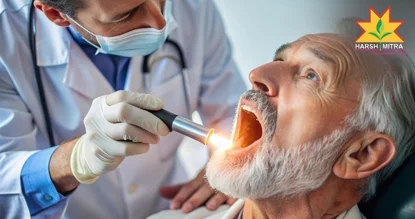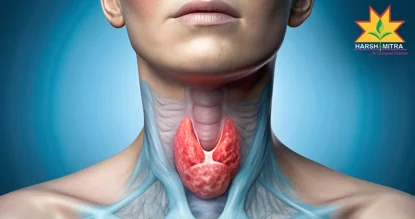Navigating Head and Neck Cancer with Support from Throat Cancer Treatment Centers and Throat Cancer Hospitals
Cancer occurs when the body's cells grow uncontrollably. Head and neck cancers begin in areas such as the sinuses, mouth (including the tongue, gums, and roof of the mouth), throat (pharynx), and larynx (voice box). These cancers can also affect the lips (classified as skin cancer) and, in rare cases, the salivary glands. Brain and eye cancers are not included in this category.
Head and neck cancer are more common in men, with the diagnosis rate being more than twice as high in men compared to women. People over the age of 50 are also more likely to be diagnosed with head and neck cancers than younger individuals.
Symptoms
Head and neck cancer symptoms vary but may include a persistent lump in the neck, a sore throat or mouth that doesn’t heal, difficulty swallowing, or voice changes. Specific signs can involve white or red patches, jaw swelling, pain, blocked sinuses, nosebleeds, or swelling under the chin. While these symptoms may also stem from less serious conditions, early medical consultation is crucial for proper diagnosis and treatment.


Causes of Head and Neck Cancers
Head and neck cancers are primarily linked to tobacco and alcohol use, which increase the risk of cancers in the mouth, throat, and voice box. HPV infection is responsible for about 70% of oropharyngeal cancers. Other risk factors include excessive UV exposure, occupational hazards like asbestos and formaldehyde, Epstein-Barr virus infection, and radiation treatments. Men over 50 are at a higher risk of developing these cancers.
Treatment
Head and neck cancer treatment may include surgery, radiation, chemotherapy, targeted therapy, immunotherapy, or a combination, depending on the tumor's location, cancer stage, and the patient's overall health. For HPV-related oropharyngeal cancer, studies are exploring if less intense treatments like reduced radiation or immunotherapy could be as effective, as patients with HPV-positive tumors have a better prognosis. It's important to consult with throat cancer treatment centers and throat cancer hospitals to find the best care and approach for each individual.
Patients should discuss treatment options with their doctors, considering how each approach may impact appearance, speech, eating, breathing, and quality of life. Seeking expert advice at throat cancer treatment centers and throat cancer hospitals can help patients navigate their treatment journey with tailored support.
Reducing the Risk of Head and Neck Cancers
Reducing the risk of head and neck cancers involves addressing specific risk factors. People at higher risk, especially those who use tobacco, should talk to their doctor about ways to quit smoking or using tobacco products to lower their chances of developing these cancers. Preventing oral HPV infection is another important step, as it reduces the risk of HPV-related head and neck cancers. The HPV vaccine, Gardasil 9, has been approved to prevent oropharyngeal and other head and neck cancers caused by certain HPV types in individuals aged 9 to 45 years.
Book an Appointment
Seeking an expert consultation, Cancer Screenings, Conservative Surgeries, a second opinion, or immediate treatment, our state-of-the-art facility is ready to support you at every stage of your cancer journey. We prioritize your health and comfort, making the appointment process quick and easy. Take the first step towards specialized cancer care today.
What you can expect from us:
Expert Cancer Care : Specialized in all forms of cancer treatment, including curative, preventive, and palliative oncology
Advanced Technology : Featuring cutting-edge therapies like Linear Accelerator Radiation (LINAC) and 24-channel Brachytherap
Personalized Treatment Plans : Tailored to meet the unique needs of each patient, ensuring holistic care.
Rehabilitation and Support for Head and Neck Cancer Patients
Rehabilitation plays a crucial role in this recovery process and can include various therapies depending on the cancer's location and treatment type. This may involve physical therapy, dietary counseling, and speech therapy, as well as learning to care for a stoma (an opening in the windpipe for breathing after laryngectomy surgery). Some patients may need reconstructive surgery or, if that's not possible, prostheses to restore swallowing, speech, and appearance. Speech therapy is often required for those who have difficulty speaking, and eating may become challenging after treatment, sometimes requiring a feeding tube or intravenous nutrients.